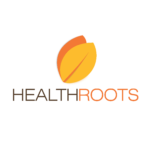Hippocrates, the father of medicine, had rightly said “Nature is the best medicine”. Our health remains the best when we are connected with nature. Most medical conditions occur due to our body’s disconnection with nature. Plant-based medicines are one way we can re-connect to nature. Herbal medicine has been used for ages and is the safest form of all the available options. They are useful in many conditions.
Herbs work differently than conventional drugs. Allopathic medicines focus on the disease and target the problem. Whereas herbs work on the body’s natural healing mechanisms.
For example, Instead of a drug increasing a certain hormone, the herb will act to balance the hormone – increasing it or decreasing it depending on what’s needed. In many cases, herbs encourage the body to start producing what is needed or stop producing what is not needed. This effect creates balance.
Precautions when choosing herbal supplements.
1. Listen to how it affects your body. If you take a herbal supplement and don’t feel well, that’s your body speaking. If the negative effect is not too strong you could try taking it again and see if you produce the same result. If your stomach feels a little upset you could try taking it with food. But ultimately, some herbs just don’t work for certain people. Listen to your body. Watch for side effects. If symptoms, such as nausea, dizziness, headache, or upset stomach occur, reduce the dosage or stop taking the herbal supplement. Be alert for allergic reactions.
2. Start with the safest & most gentle herbs and lower doses. Consider the severity of your condition. Some situations definitely require immediate medical attention and much quicker treatment than herbal medicine can provide. When in doubt check with your practitioner or a doctor to get appropriate medical advice.
3. If you’re taking medication, always check with your health care provider. It doesn’t have to be all or nothing. In many cases, people still take allopathic medicine in conjunction with herbal remedies.
4. But if you use pharmaceuticals be aware of herb-drug interactions eg. sedative herbs interacting with pain and psychiatric medications etc. There are actually not so many known interactions, but it’s best to err on the side of caution as there are endless combinations possible. Since allopathic medicine is so young, not nearly all of the combinations have been studied. Herbs that increase digestion and detoxification may clear drugs too quickly or affect absorption.
5. Be your own advocate, if your medical team is unwilling to work with you and your interests in plant medicine, look for a new team. There are healthcare workers who can guide you.
6. When taking herbs make sure to do some research. Find authentic sources that you can rely on to learn more about actions and dosages. Read up on scientific research.
Unfortunately, many scientific studies are done with only one component of a plant at incorrect dosages and time frames. Pharmaceutical companies can’t necessarily sell for profit a plant that you can grow in your backyard, so they oftentimes test isolated components of a plant instead. Herbalists use the whole plant which contains many components making it oftentimes safer, and more beneficial.
In any case, use a mix of sources to learn, and that will get you the information you need.
1. Research the company whose herbs you are taking. All herbal supplements are not created equal.
2. Read the product label properly to know about the standardized formula, side effects, ingredients, directions, and precautions.
3. If there a toll-free telephone number, an address, or a website address listed, you can find out more information about the product.
I hope that gives you a few guidelines to use herbal medicine more safely and effectively.


I was recommended this website by my cousin. I’m not sure whether this post is written by him as nobody else know such detailed about my trouble. You are incredible! Thanks!
Heya i am for the first time here. I came across this board and I find It really useful